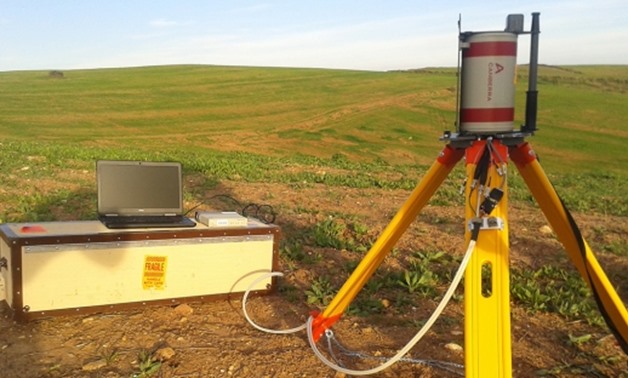
A portable gamma detector provided to the National Centre of Energy, Sciences and Nuclear Techniques in Morocco (CNESTEN). (Photo: CNESTEN)
CAIRO – 10 November 2018: Through the IAEA technical cooperation program, Egypt and Senegal have received two gamma systems to combat soil erosion, according to the official website of the International Atomic Energy Agency (IAEA) as announced on Friday Nov.9.
The website added that according to recent studies, the soil productivity in most of the Nile Delta region of Egypt has fallen by more than 45 percent in the last 35 years.
The detectors will be used to assess soil erosion in areas with severe soil degradation, a phenomenon that threatens agriculture in many regions around the world, including arid and semi-arid lands in Africa.
The International Atomic Energy Agency (IAEA), in cooperation with the Food and Agriculture Organization of the United Nations (FAO), has been assisting countries for more than 20 years in combating land degradation by supporting the use of isotopic techniques to assess soil erosion.
"We will use the gamma detectors for the 'fingerprinting' of sedimentation in the Nile River to trace the origin of contamination from different sources, such as drainage from industrial and agricultural bodies located on the riverbank," said Mohamed Kassab, a lecturer at the Egyptian Atomic Energy Authority's Nuclear Research Centre. "We also plan to help other countries in Africa to build capacity in gamma measurements and analytical services."
Agriculture is an important economic sector in most African countries because it provides livelihoods for farmers and their families.

Comments
Leave a Comment